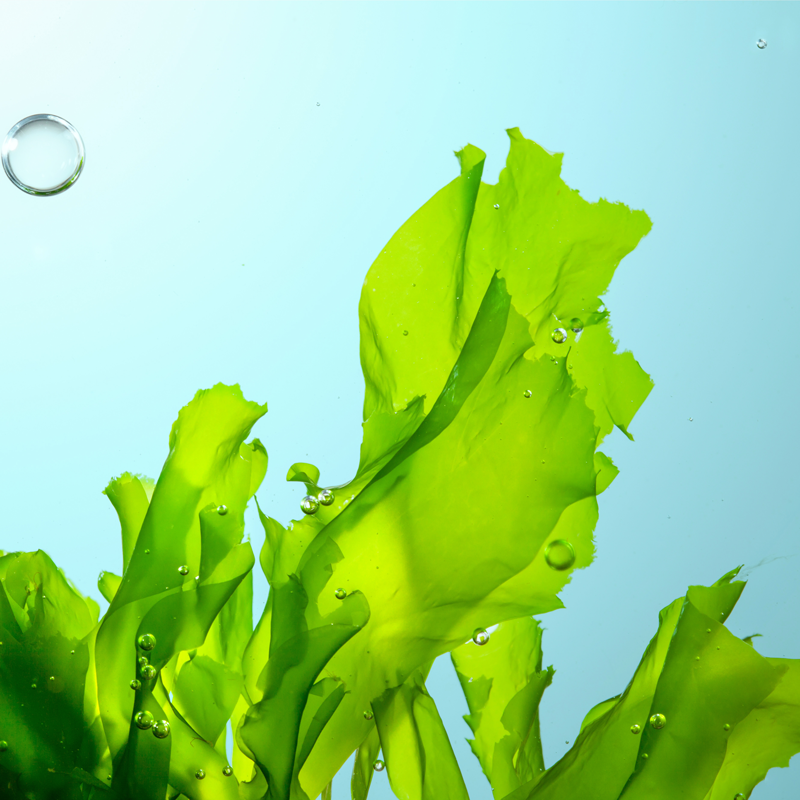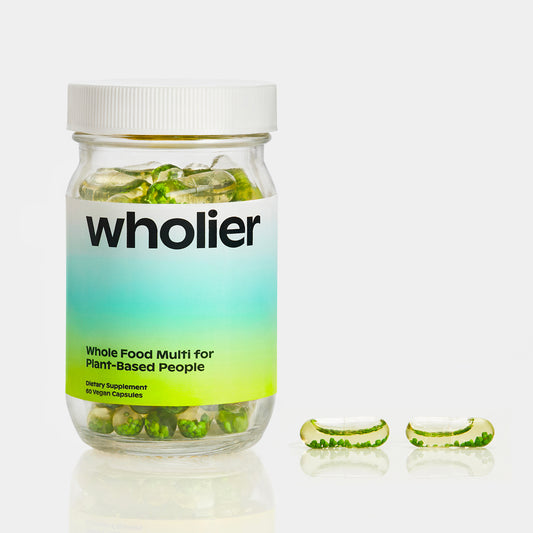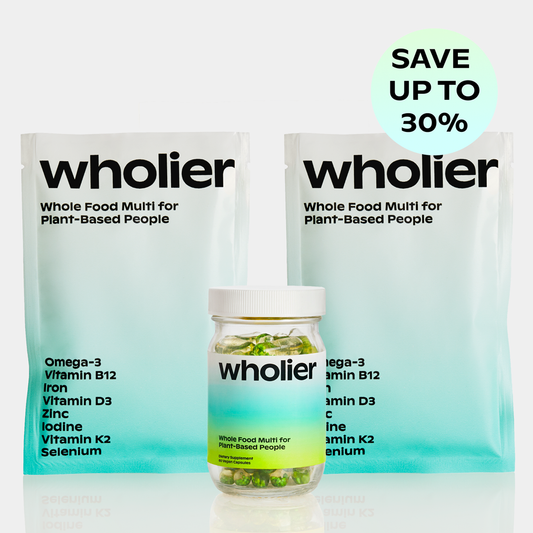
Can You Get B12 Enough B12 in Plants Alone?
Choosing a vegan or vegetarian lifestyle presents numerous health and environmental benefits, but it also raises important questions about nutrient intake. One of the most common concerns is around vitamin B12 - a crucial nutrient our bodies need to function properly. So, can you get enough B12 from plant sources alone? Let's find out.
What is Vitamin B12 and Why Do We Need It?
Vitamin B12, or cobalamin, is a water-soluble vitamin that plays a vital role in brain function and the production of DNA and red blood cells.(1) A deficiency can lead to various health issues such as fatigue, weakness, constipation, loss of appetite, weight loss, and megaloblastic anemia. More severe deficiencies can cause neurological changes like numbness and tingling in the hands and feet, balance problems, depression, confusion, dementia, and poor memory.(2)
Can You Find Vitamin B12 in Plant-Based Foods?
The simple answer is: Not really. Vitamin B12 is naturally found in animal products, including fish, meat, poultry, eggs, milk, and milk products. The vitamin B12 in these foods is present in a form that our bodies can absorb and utilize.(3)
Plant foods don't naturally contain vitamin B12 unless they are fortified. This is because B12 is made by microorganisms, and animals get B12 by eating foods contaminated with these microorganisms.(4)
There are a few exceptions. Certain types of mushrooms and some algae have been found to contain B12. However, it's important to note that the B12 in these plants is in a form that's not bioavailable, meaning our bodies can't use it effectively. So, while these sources might contribute to your B12 intake, they shouldn't be relied upon as your only source.(5)
Do Vegans and Vegetarians Need to Supplement B12?
Given the scarcity of bioavailable B12 in plant-based sources, vegans and vegetarians should consider B12 supplementation. A daily intake of around 150mcg is typically adequate.(6)
But it's not just the quantity that matters; the form of B12 is equally important. B12 supplements often come in two forms: cyanocobalamin and methylcobalamin. While both can help meet your B12 needs, there's a growing consensus that methylcobalamin may be a better choice for those on a plant-based diet.
Why? Well, methylcobalamin is considered more 'bioactive'. It's closer to the form of B12 our bodies need, allowing for easier absorption and use by our cells. On the other hand, cyanocobalamin needs to be converted into a bioactive form before our bodies can use it, which requires extra effort from our bodies.(7)
Of course, fortified foods like plant-based milks, breakfast cereals, and nutritional yeast can also help meet your B12 needs. These foods are fortified with a synthetic form of B12 that is bioavailable and can be absorbed effectively by the body.(8)
The Bottom Line: Can You Get Enough B12 from Plants?
While certain plant foods contain some B12, the amount is usually not enough to meet your daily requirements, and it's often in a form that's not easily absorbed by the body. Therefore, if you're a vegan or vegetarian, it's essential to consider B12 supplementation or the consumption of B12 fortified foods to ensure you're getting enough of this crucial nutrient.
Sources:
(1) "Vitamin B12." National Institutes of Health - Office of Dietary Supplements, U.S. Department of Health and Human Services, ods.od.nih.gov/factsheets/VitaminB12-HealthProfessional/.
(2) Langan, Robert C., and Goodbred, Andrew J. "Vitamin B12 Deficiency: Recognition and Management." American Family Physician, 15 Sept. 2017, www.aafp.org/afp/2017/0915/p384.html.
(3) Watanabe, F., Yabuta, Y., Bito, T., and Teng, F. "Vitamin B12-Containing Plant Food Sources for Vegetarians." Nutrients, vol. 6, no. 5, 2014, pp. 1861–1873., doi:10.3390/nu6051861.
(4) Allen, Lindsay H. "How common is vitamin B-12 deficiency?" The American Journal of Clinical Nutrition, vol. 89, no. 2, 2009, pp. 693S-696S., doi:10.3945/ajcn.2008.26947A.
(5) Watanabe, F., Bito, T. "Vitamin B12 sources and microbial interaction." Experimental Biology and Medicine, vol. 243, no. 2, 2018, pp. 148–158., doi:10.1177/1535370217746610.
(6) "Vitamin B12: Fact Sheet for Health Professionals." National Institutes of Health - Office of Dietary Supplements, U.S. Department of Health and Human Services, ods.od.nih.gov/factsheets/VitaminB12-HealthProfessional/.
(7) Okuda, K., Yashima, K., Kitazaki, T., and Takara, I. "Intestinal absorption and concurrent chemical changes of methylcobalamin." Journal of Laboratory and Clinical Medicine, vol. 105, no. 4, 1985, pp. 509–515.
(8) Rizzo, G., Lagana, A. S., Rapisarda, A. M. C., La Ferrera, G. M. G., Buscema, M., Rossetti, P., Nigro, A., Muscia, V., Valenti, G., Sapia, F., Sarpietro, G., Zigarelli, M., and Vitale, S. G. "Vitamin B12 among Vegetarians: Status, Assessment and Supplementation." Nutrients, vol. 8, no. 12, 2016, p. 767., doi:10.3390/nu8120767.





